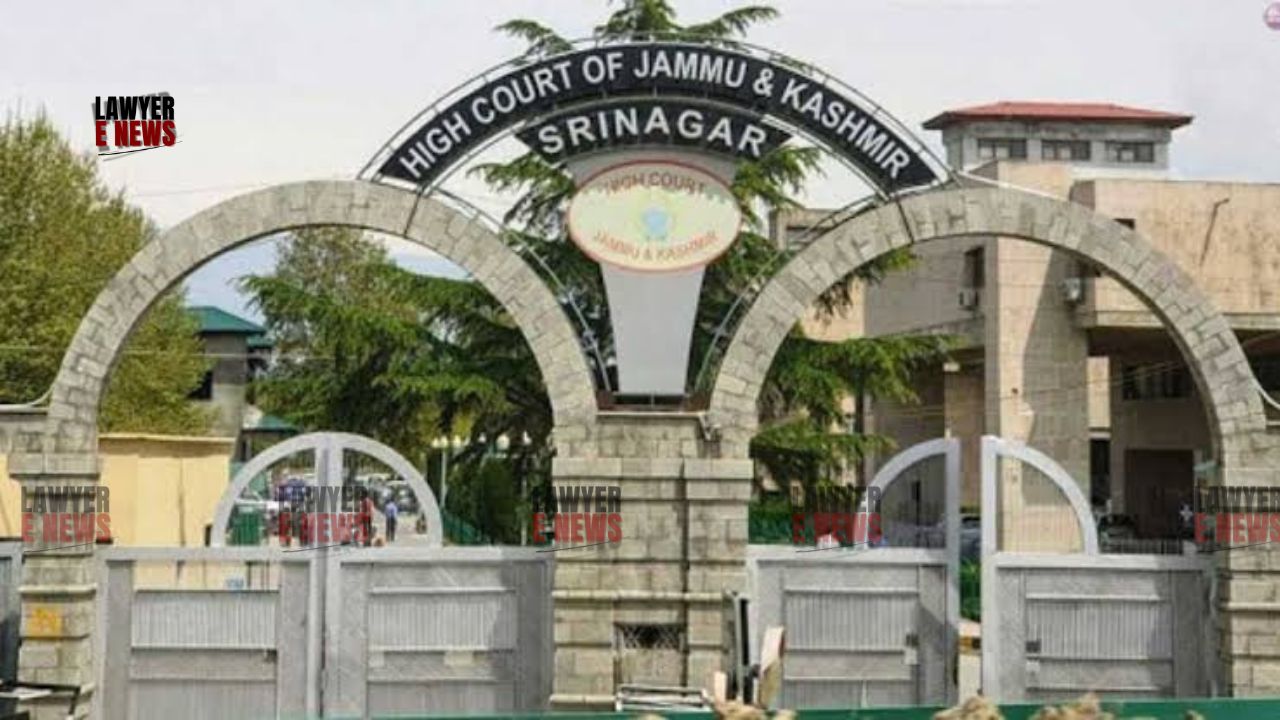-
by Admin
15 February 2026 5:35 AM



Jammu, May 2024 – The High Court of Jammu & Kashmir and Ladakh at Jammu has quashed the University of Jammu’s advertisement for the recruitment of an Assistant Professor in Sociology under the Economically Weaker Section (EWS) category. Justice Sanjeev Kumar’s judgment emphasized that the University had not amended its statutes to include EWS reservations, thereby rendering the advertisement unsustainable.
The case, Deepali Dutta vs. The University of Jammu & Others (WP© No. 605/2024), revolved around the University of Jammu’s recruitment process for an Assistant Professor in Sociology under the EWS category. The petitioner, Deepali Dutta, challenged the provisional selection of respondent No.4, Mr. Abhinandan, citing his ineligibility under the Jammu & Kashmir Reservation Act, 2004, and the University’s failure to incorporate EWS reservations into its statutes.
Applicability of EWS Reservation Policies Justice Sanjeev Kumar scrutinized the University of Jammu’s adherence to the Jammu & Kashmir Reservation Act, 2004, and UGC guidelines. He noted that while the Act permits EWS reservations, the University’s statutes only provide for SC/ST reservations and had not been amended to include EWS reservations. The judgment clarified that “the advertisement for the post under EWS category is held unsustainable as the University failed to amend its statutes to include such reservations.”
UGC Guidelines and University Statutes: The Court further examined the UGC guidelines on reservation. It was noted that the UGC guidelines mandate reservations for SC/ST categories but do not explicitly cover EWS reservations. The University’s existing statutes, framed under Section 41 of the Kashmir and Jammu Universities Act, 1969, were found to only accommodate SC/ST reservations, specifically at the level of Assistant Professor. The University had not updated these statutes to reflect the inclusion of EWS reservations.
The Court also addressed the issue of the respondent No.4’s eligibility. Despite possessing an EWS certificate issued under the norms of the Government of India, he did not qualify for an EWS certificate under the Jammu & Kashmir Reservation Act, 2004. Consequently, his selection under the EWS category was deemed invalid.
The judgment delved into the principles of reservation policies under Article 16 of the Constitution of India and their application within the University’s recruitment framework. It highlighted that while the 103rd Constitutional Amendment Act, 2019, introduced EWS reservations, the University of Jammu had not complied with the requisite statutory amendments to incorporate such reservations into its recruitment process.
“The University’s failure to amend its statutes to include EWS reservations renders the advertisement and selection process for the post in question unsustainable in law,” Justice Kumar stated.
The High Court’s decision underscores the critical importance of statutory compliance in implementing reservation policies within educational institutions. By quashing the advertisement and directing the University to re-advertise the post in accordance with existing laws, the judgment reinforces the necessity for universities to align their statutes with legislative and regulatory frameworks. This decision is expected to have significant implications for future recruitment processes and the implementation of reservation policies in higher education institutions.
Date of Decision: May 3, 2024
